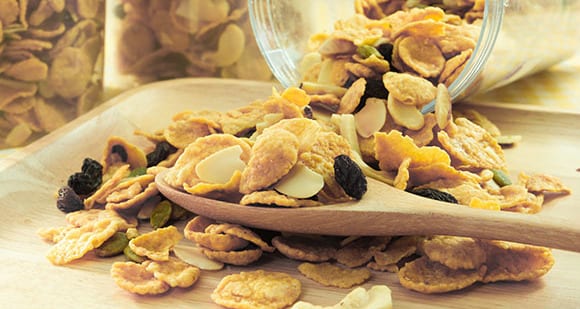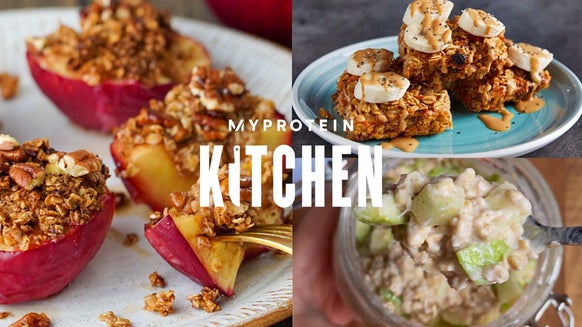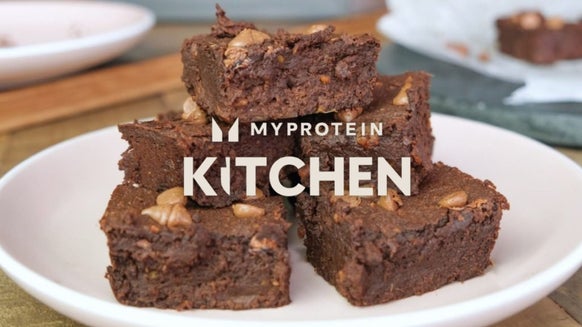
Bloating is a common complaint for both men and women alike, although due to hormonal fluctuations, women tend to suffer from this annoying ailment more frequently than men.
There can be many culprits in your diet that may be contributing to bloating, and being aware of these can help you avoid the horrible discomfort that it can cause.
1) Salty foods
Salty foods are a major cause of bloating in many people. Although the body needs a certain amount of sodium to function, many foods have this nutrient added in excess.
When the body digests a food that is very salty, it causes the body to hold water (water retention). As a result, you are left feeling bloated... and most likely incredibly uncomfortable!
Processed foods and Fast foods tend to be common culprits for salt overload - well we all know they're not the healthiest food option for you for a number of reasons (it's true...) - and being full of salt is one of them!
If applicable, check the label/menu for salt and sodium content... you might just be shocked at how much of the stuff you're putting into your body!
2) Fried foods
It isn't news that fried foods, again, aren't the healthiest food option - however, some people may not realise that that portion of chicken nuggets or those 'healthy' deep fried prawns were the major cause of their bloated stomach!
The high fat content in fried foods makes it difficult for the body to digest them, therefore causing that sickly-bloated feeling!
Again, fast food fall under this category; in addition to the unhealthy fat (more than likely saturated fat), the added sodium in fast foods further compound the bloating it can cause... not nice!
3) Vegetables
Some vegetables can cause bloating, especially beans and Brussels sprouts which have their gas causing reputation for a good reason.
The reason behind this is due to these vegetables containing a special type of carbohydrate known as Raffinose, which the body struggles to break down, therefore, you guessed it - Stomach pain galore!
Vegetables are high in fibre, and although this is a great thing for our health, can also have the unpleasant side effect of excess gas and bloating if we eat portion sizes we are not used to.
Everyone tolerates certain vegetables differently, and some better than others, but it is wise to not consume these particular vegetables in excess if you are prone to suffering from a not-so-lovely swollen stomach.
4) Fizzy drinks
Fizzy drinks (carbonated drinks) and even fizzy water can cause bloating due to the carbon dioxide that is present in the bubbles - in other words, the gas created gets trapped in your belly!
Why not try making your own gas-free beverage and avoid the bloat?...
Yes, it may be difficult - it is easily understood that some people may have a slight addiction to fizzy drinks, especially if drank as part of your daily routine. Start by reducing the number of fizzy drinks consumed each day, substituting them with...
? Water flavoured with fruit pieces - lemon/lime/strawberries/raspberries
? Water flavoured with
? Flavoured teas - even pop a fruit tea bag in your water bottle for a slight fruitiness!
5) Dairy Products
Dairy can be a common cause of bloating
Many people who have trouble digesting dairy can find they tolerate yoghurt better than milk... especially Greek yoghurt (even better!)
Often athletes cut dairy unnecessarily from their diet believing it will bloat them by default when this is not necessarily the case. Dairy provides numerous benefits for both fat loss and muscle building and so should not be cut from the diet unless it is recommended by a dietician or doctor to do so.
If you do have to reduce or cut dairy from your diet, it is may be worth incorporating other calcium rich foods to ensure the health of your teeth and bones.
6) Sugary Foods
Sugary foods such as cakes and chocolate can cause bloating as the bacteria in your stomach will feed on the sugar... in turn, this will cause that frustrating bloating and, more prominently, gas!
Sugar also is digested rapidly, which when emptied form the intestines quickly, can actually cause cramping, giving that uncomfortable bloated painful feeling.
Carbohydrates also hold four times their weight in water which is why many people may see quite significant weight gain when they eat them in abundance beyond what they normally would eat.
This tends to be predominantly water weight, which accompanies the bloating characteristic of after a heavy meal.
Fibrous carbohydrates - although not technically sugar - can also be a cause for bloating, therefore when increasing your fibre intake do so gradually to avoid unpleasant side effects!
Take home message
Bloating is a common issue that can be very uncomfortable. Thankfully, there are ways to reduce its occurrence.
Keeping hydrated can be a major help against combating water retention as the body does not feel the need to hold water excessively when it is adequately hydrated.
If you suffer from frequent bloating, it can be useful to keep a food diary to try and trace the exact cause of it.
If you have any concerns about persistent bloating, mention this to your doctor at your next check up as it is a discomfort that you do not have to live with, once you establish the cause, you may be able to avoid it!








